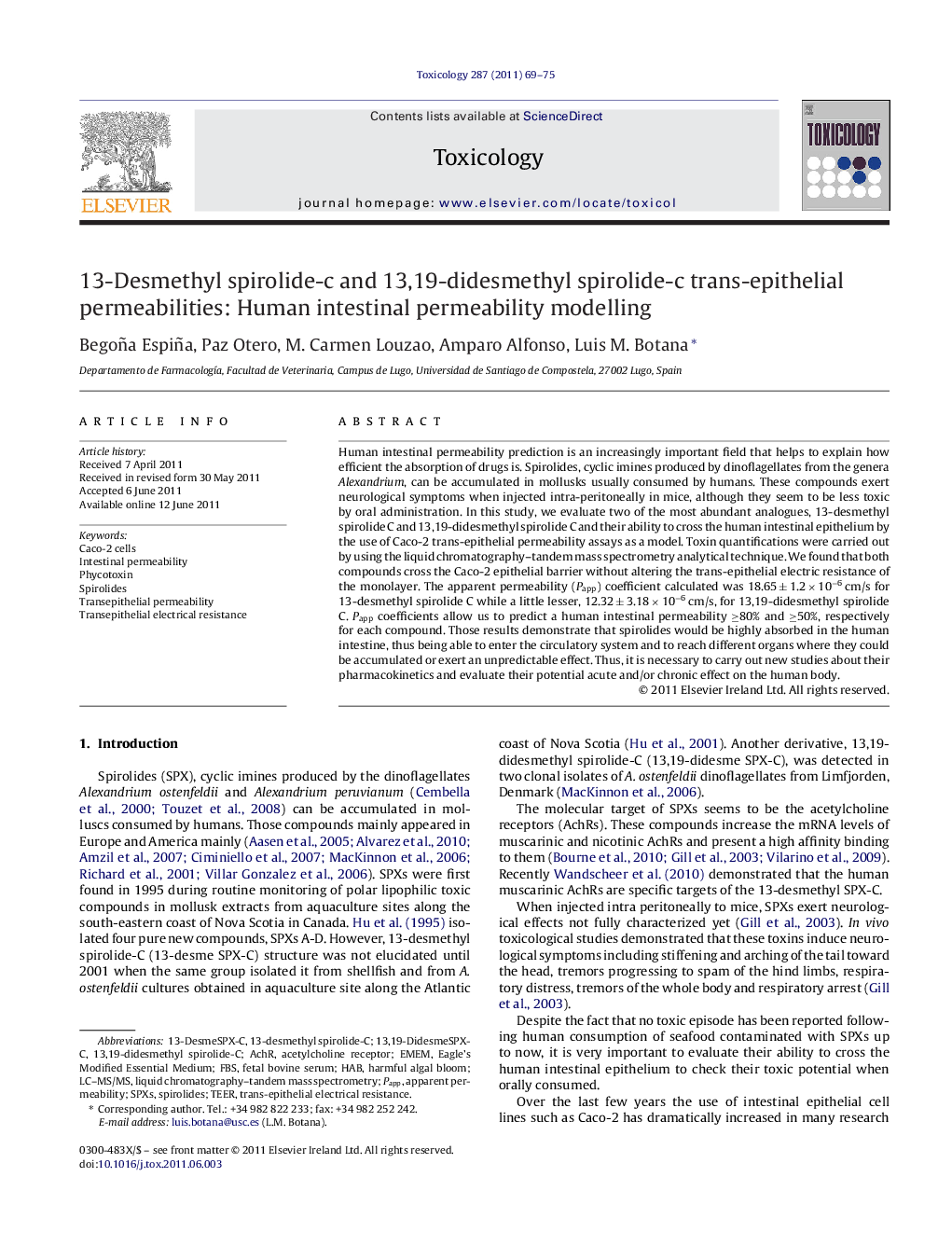| کد مقاله | کد نشریه | سال انتشار | مقاله انگلیسی | نسخه تمام متن |
|---|---|---|---|---|
| 2596019 | 1562370 | 2011 | 7 صفحه PDF | دانلود رایگان |

Human intestinal permeability prediction is an increasingly important field that helps to explain how efficient the absorption of drugs is. Spirolides, cyclic imines produced by dinoflagellates from the genera Alexandrium, can be accumulated in mollusks usually consumed by humans. These compounds exert neurological symptoms when injected intra-peritoneally in mice, although they seem to be less toxic by oral administration. In this study, we evaluate two of the most abundant analogues, 13-desmethyl spirolide C and 13,19-didesmethyl spirolide C and their ability to cross the human intestinal epithelium by the use of Caco-2 trans-epithelial permeability assays as a model. Toxin quantifications were carried out by using the liquid chromatography–tandem mass spectrometry analytical technique. We found that both compounds cross the Caco-2 epithelial barrier without altering the trans-epithelial electric resistance of the monolayer. The apparent permeability (Papp) coefficient calculated was 18.65 ± 1.2 × 10−6 cm/s for 13-desmethyl spirolide C while a little lesser, 12.32 ± 3.18 × 10−6 cm/s, for 13,19-didesmethyl spirolide C. Papp coefficients allow us to predict a human intestinal permeability ≥80% and ≥50%, respectively for each compound. Those results demonstrate that spirolides would be highly absorbed in the human intestine, thus being able to enter the circulatory system and to reach different organs where they could be accumulated or exert an unpredictable effect. Thus, it is necessary to carry out new studies about their pharmacokinetics and evaluate their potential acute and/or chronic effect on the human body.
► Spirolides do not disturb intestinal monolayer epithelium integrity.
► Spirolides are able to cross a differentiated Caco-2 monolayer.
► Spirolides can be almost completely absorbed in the human intestine.
► Small differences in spirolides structures modify their intestinal absorption.
Journal: Toxicology - Volume 287, Issues 1–3, 5 September 2011, Pages 69–75